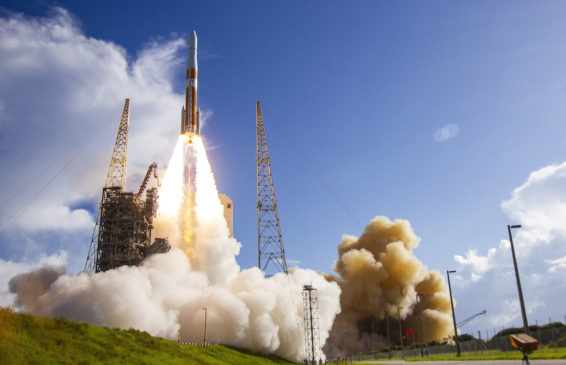The U.S. Department of Defense can’t afford to lose the global military blockchain race to Russia and China, warns a new whitepaper by Amazon Web Services, IBM, Deloitte and others.
Organized by the Value Technology Foundation think tank and co-authored by a smattering of private sector tech companies, consultancies and blockchain firms, the briefing offers a sobering analysis of that race as it stands.
“The two superpowers that pose the greatest threat to the U.S. are both heavily investing in both the research and development of blockchain technology,” the briefing said: China’s on the “economic warfare” offensive with its digital currency. Russia is on defense with a lab dedicated to blockchain cyber threat mitigation.
The U.S. needs to similarly bootstrap its blockchain and DLT warfighter readiness, and it stands to benefit as soon as it does, the briefing said. In addition to AWS, IBM and Deloitte, the paper was written by Accenture, CGI Federal, ConsenSys, SIMBA Chain and Colvin Run Networks.
In cybersecurity, blockchain could broadly assist the military in anything from “weapons release” to stopping data erasure, an impossible proposition for append only databases. But it could also bolster command and control mechanisms through multi-party authentication.
If multiple parties hold command authority, and they must reach consensus to act, then the system could be made more secure with blockchain, the group wrote. This could have specific benefits for the military’s newest branch: the Space Force.
Blockchain could contribute to the Space Force by adding multi-factor authentication to satellite communication systems, the group wrote. Such systems are generally insecure, and according to the report they’ve been exploited or proven vulnerable before with issues that DLT could fix.
“An attacker would need to gain control over an arbitrary number of user accounts and be able to use those accounts to perform actions on the blockchain in order to confirm an inappropriate command,” the report said.
They advocated for DLT in the military supply chain with the same logistics playbook that civilian blockchain boosters hawk: identifying counterfeit goods verification, tracing provenance, keeping the food supply safe during a recall, sourcing commodities. All have defense department applications, according to the report.
But the military supply chain has already begun implementing DLT. The report documented a handful of blockchain trials in defense aerospace, aircraft parts additive manufacturing and naval engineering contracts.
Defense bureaucrats stand to benefit from a blockchain-based procurement process, the group said. Smart contracts could record deals whose data is shared only among authorized parties, with everything visible to the Defense Department in real time.
This could add transparency and auditability to a gargantuan military-industrial procurement machine, which in 2018 admitted to losing hundreds of billions of dollars to contract fraud.
“Just as the DoD found a way to build new applications and make distributed systems possible on the Internet, blockchain enables new capabilities by offering a layer of trust that the DoD can apply to improve its procurement process,” the report said.
Disclosure Read More
The leader in blockchain news, CoinDesk is a media outlet that strives for the highest journalistic standards and abides by a strict set of editorial policies. CoinDesk is an independent operating subsidiary of Digital Currency Group, which invests in cryptocurrencies and blockchain startups.




